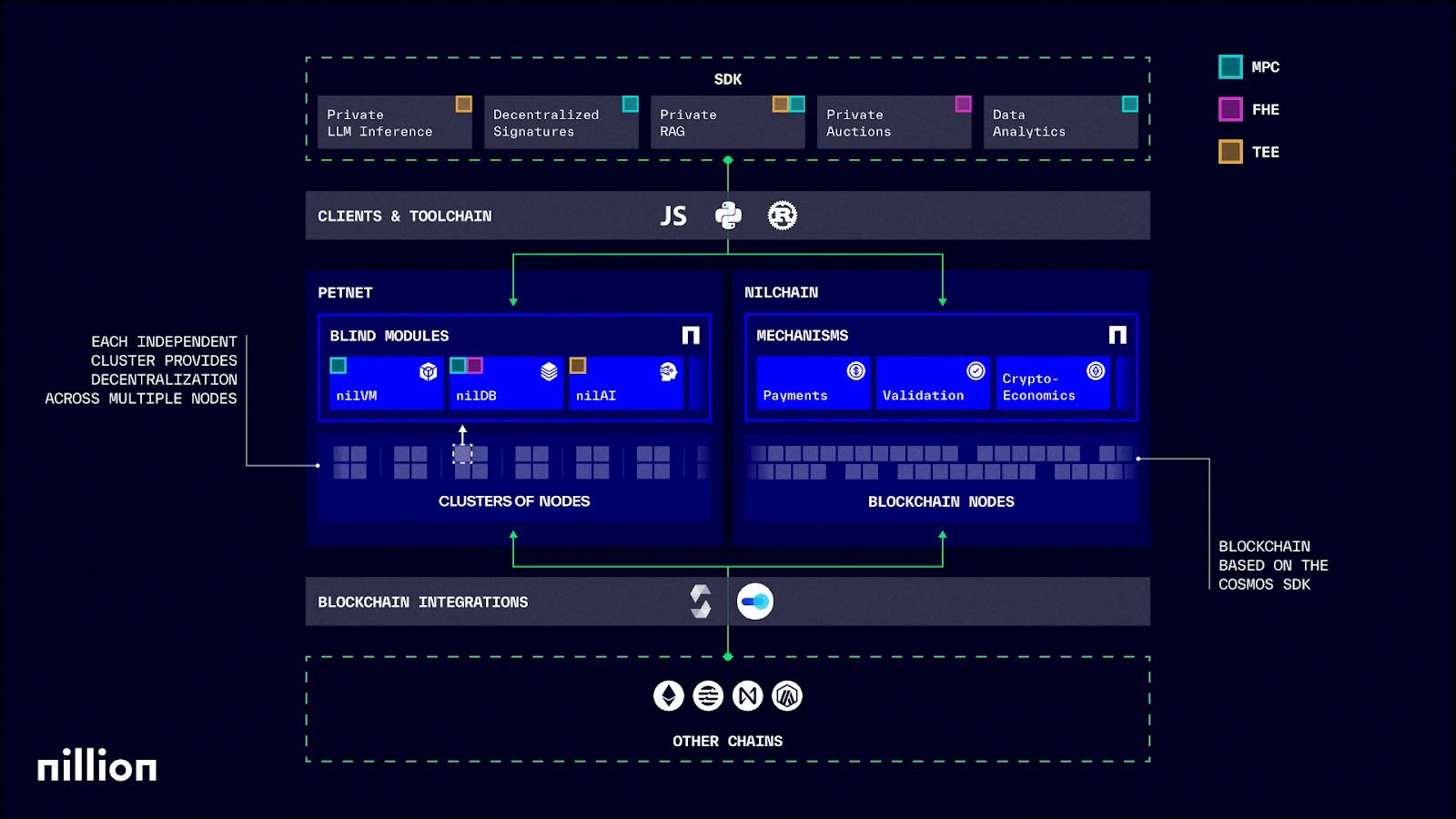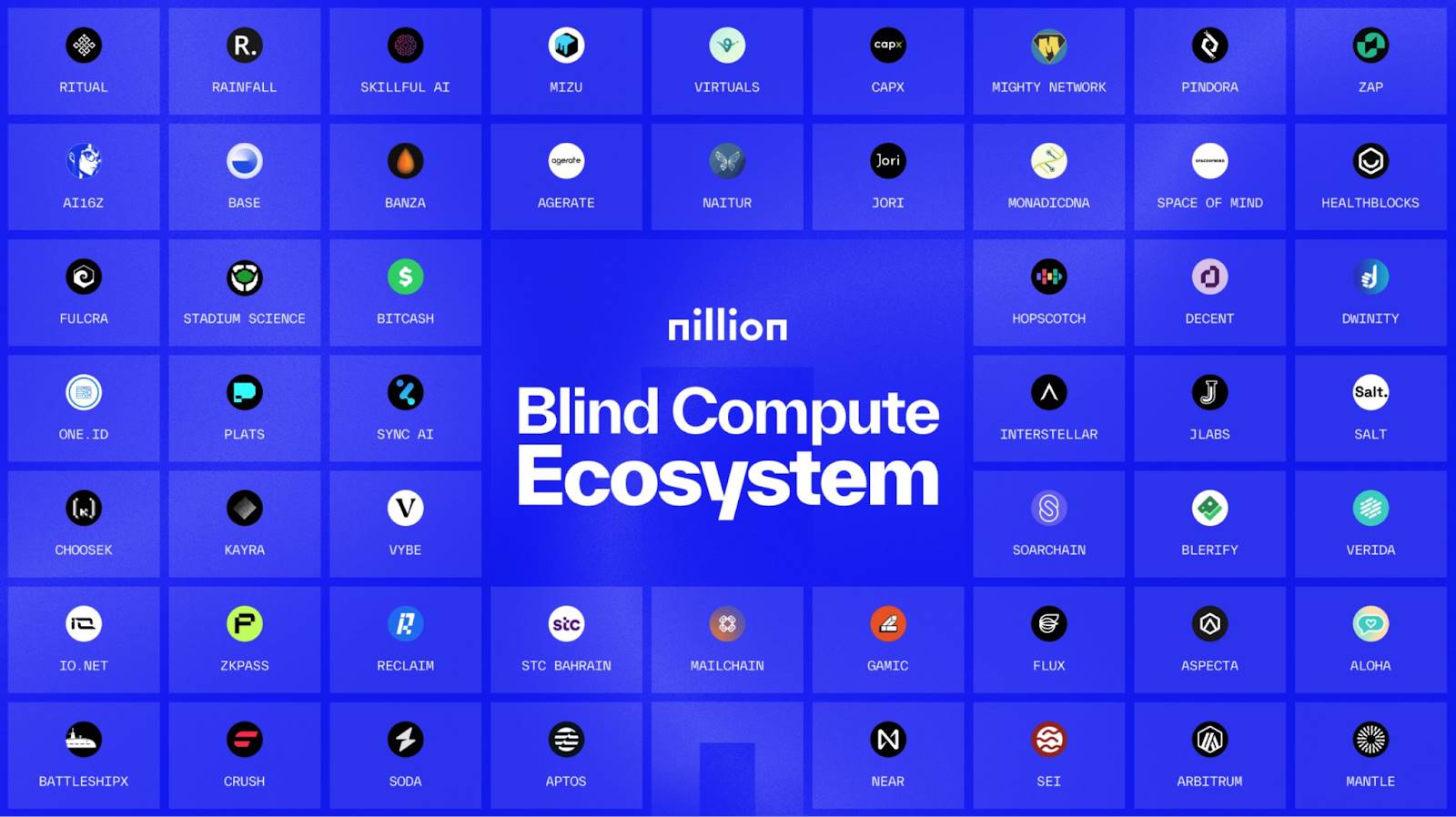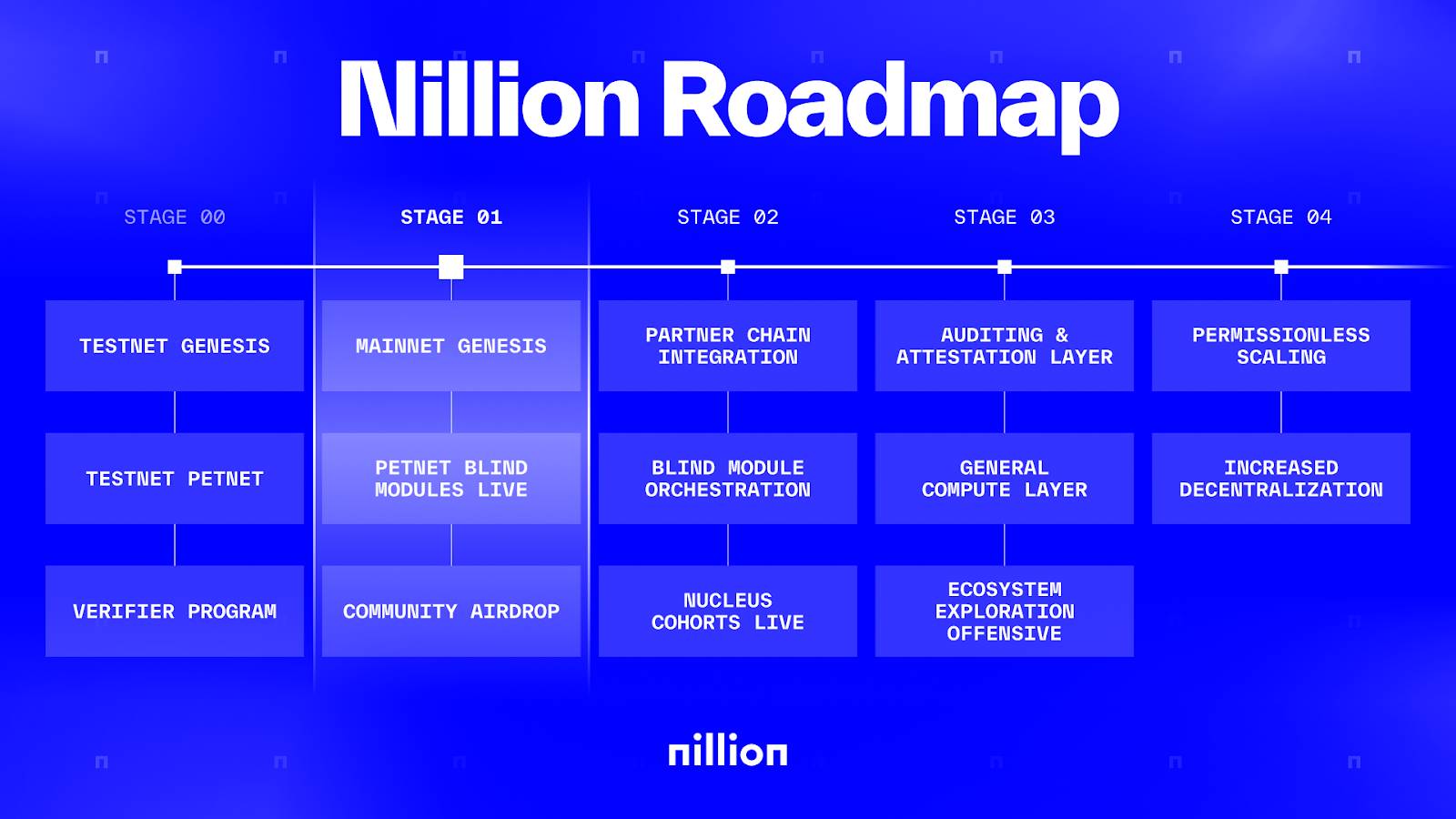Nillion focuses on high-value data, referring to highly sensitive private data that is extremely valuable to organizations or individuals, typically capable of significantly impacting users' lives, such as personal medical genetic data. The leakage of such data can often bring severe consequences to the data owners, requiring more robust security defenses. By achieving "data usability without visibility", it can further unlock more valuable application scenarios and build a more fair data ecosystem.
Secondly: storage, transmission, and processing in a fully encrypted state.
Many privacy solutions aim to achieve storage, transmission, and processing of data in a fully encrypted state. Currently popular blockchain privacy technologies include Zero-Knowledge Proofs (ZK), Multi-Party Computation (MPC), Fully Homomorphic Encryption (FHE), and Trusted Execution Environments (TEE).
Nillion aims to build a blind computation network where users do not need to trust anyone, and nodes can collaborate to compute data, but local nodes cannot see the data plaintext and know nothing about input data or output results.
So, what is "blind computation"?
It is actually a broad concept that can be said to be a collective term for various technologies and methods that can "perform calculations without exposing input data", a product of the integrated development of multiple cryptography and secure computing technologies.
Our country has a famous reform and opening-up slogan: No matter if it's a black cat or a white cat, a cat that catches mice is a good cat.
Nillion's blind computation concept shares many commonalities with this saying:
Different privacy computing methods have their unique advantages and applicable scenarios, but also face their own challenges. For example, MPC often faces communication complexity, FHE struggles with computational overhead, and TEE is criticized for its trusted foundation. Single solutions often face computational complexity and performance limitations, making it difficult to balance efficiency, security, and scalability, and often unable to meet diverse privacy scenarios.
Therefore, Nillion is committed to building a flexible and efficient development environment that aggregates all privacy technologies: facing different requirements in different scenarios, developers do not need to understand the specific details of privacy technologies. The Nillion compiler will help choose the best combination of privacy technologies, thus helping developers easily build applications with privacy functions.
In this "blind computation network", Nillion adopts a parallel two-layer architecture design of Petnet and NilChain:
NilChain is like the "scheduling center" and "incentive center" for the entire network:
Built on the Cosmos SDK, NilChain is mainly responsible for node management, task scheduling, inter-cluster coordination, and payment settlement. Meanwhile, NilChain supports IBC (Inter-Blockchain Communication Protocol) to achieve interoperability with other blockchains. For example, NilChain records node staking and reputation, distributes computing tasks to appropriate Petnet node clusters, and handles user payments and node rewards.
Petnet is primarily responsible for data storage and computation, composed of a distributed node network.
As the orchestration layer, Petnet's functionality relies on two key components:
- Compiler: Simplifying privacy technology use by providing different levels of abstraction
- Computation Network: Executing secure computation and managing encrypted data

Image source: Nillion Doc
Petnet aggregates various privacy technologies including ZK, MPC, FHE, and TEE, all running in their independent Blind Modules as core components for executing specific functions. Meanwhile, Nillion has also introduced a series of utility tools to further lower privacy thresholds and enhance development experience.
... (rest of the text continues in the same manner)
As a decentralized dark pool exchange, Kayra is based on Multi-Party Computation (MPC) order book technology, aiming to provide a privacy-protected trading experience. Currently operating on the Aleo, Ethereum Sepolia, and Nillion testnets, it is dedicated to offering users a secure and private trading environment.
In the DeSci (Decentralized Science) field, the medical and health sector is undoubtedly one of the most promising application scenarios.
Traditional medical research typically faces a very prominent challenge: researchers need to access large and diverse datasets to assess and analyze health conditions, but most people are unwilling to share their health data due to privacy concerns. This not only limits the sample size but also slows down the research process.
Nillion's privacy computing solution provides an innovative answer to this problem: through its technology, researchers can analyze health data without revealing personal information, thereby eliminating trust issues in data sharing.
Currently, Nillion's technical features have attracted the attention and cooperation of multiple medical and health projects:
Space of Mind is a platform focused on providing affordable peer support for people experiencing Post-Traumatic Stress Disorder (PTSD). Through Nillion, the platform achieves privacy and secure management of patient data, ensuring that user information is not misused.
Monadic DNA focuses on the security and privacy of personal genomic data, aiming to help users own and manage their genetic information, avoiding data leakage risks associated with traditional methods. Using Nillion's blind computation technology, users can safely process data and generate DNA passports after uploading raw DNA files, while ensuring data privacy is not violated.
AgeRate is an online platform dedicated to helping people achieve a healthier and longer life. Users only need to collect a small blood sample and send it back to receive a health score and personalized recommendations. By collaborating with Nillion, AgeRate ensures user privacy is not leaked while allowing users to have a more comprehensive understanding of their health status.
Additionally, Nillion's ecosystem extends to social, DAO, and other consumer-level application scenarios:
For example, Aloha is an AI-driven dating app aimed at helping users authentically showcase themselves and efficiently find suitable matches. By integrating Nillion's blind computation technology, Aloha ensures user data security and reduces the risk of data leakage.

Image source: Twitter @nillionnetwork
The diverse ecosystem not only demonstrates the high demand for privacy across multiple niche tracks and the recognition of Nillion's privacy solutions but also provides users with rich exploration experiences even in the early stages of mainnet launch.
As Nillion's mainnet officially launches in March 2025, its ecosystem collaboration will further accelerate, bringing innovative privacy-safe experiences to more users.
Conclusion
In the future, with the official mainnet launch and TGE initiation, more of Nillion's roadmap plans will soon be implemented.
According to its officially revealed roadmap, in the first stage of project development, Nillion will focus on launching the mainnet, followed by promoting the coordination and optimization of the blind computation module, aiming to bring the universal computation layer online as soon as possible to support broader application scenarios.
In the second stage, Nillion's key work will focus on launching the validator program, ensuring network security and reliability, continuously improving the network's decentralization, and actively promoting integration with other blockchain projects or ecosystems.
In the third stage, Nillion will concentrate on audit and certification mechanisms to continuously enhance the network's credibility and transparency. In the final fourth stage, Nillion will focus on expanding the ecosystem scale, striving to achieve permissionless network expansion, supporting more users and applications, and launching an ecosystem exploration program to promote the landing of more innovative applications.

Image source: Twitter @nillionnetwork
As a privacy project backed by a former Uber executive's startup and top VCs, we can see Nillion's forward-thinking approach in product design, ecosystem expansion, and community building.
By providing end-to-end encrypted storage, transmission, and processing of high-value data, Nillion aims to build the next-generation privacy infrastructure and is committed to promoting secure, efficient, and rapid development in multiple fields, including AI, DeFi, and DeSci.
The handling of the Airdrop controversy and the CMO's long article detailing community questions and explaining Airdrop rules have also enhanced the community's confidence in the project's long-term healthy development.
In an era where privacy and data value are equally important, privacy exemplified by projects like Nillion will become a crucial force in driving the Web3 ecosystem's prosperity. As Nillion officially launches its mainnet and enters a new stage of ecosystem development, we look forward to Nillion being a significant force in the Web3 development wave, accelerating the arrival of the privacy era.








